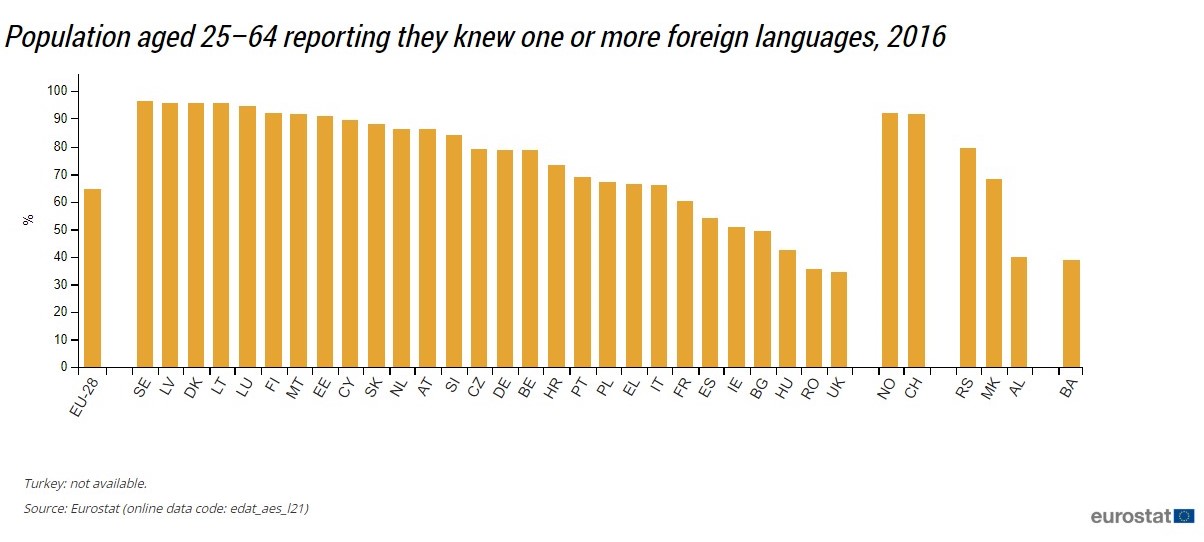Learning foreign languages constitutes a cornerstone in communication in Europe and beyond. It is an invaluable tool not only for adding to a CV and claiming better career prospects, but also for enhanced connectivity and contact between different countries and their residents. According to Eurostat, in the EU, Sweden leads the way with 96.6% of adults, between 25 and 64 years, reporting that they know one or more foreign languages, a figure that in Greece fluctuates at 66.5%.

Source: https://ec.europa.eu/eurostat/statistics-explained/index.php/Foreign_language_skills_statistics#Number_of_foreign_languages_known
However, one important factor in language learning, which is often overlooked when adults are concerned, is the existence of learning difficulties. It is true that in recent years, significant efforts have been made to bridge the gaps in learners and special education, but the situation is different for adults. Learning practices and tools are not as often when it comes to adults, so they may get discouraged to pursue a more active involvement in language learning, being aware of the additional difficulties and challenges they will have to face compared to students without learning difficulties such as dyslexia or dysgraphia.
The Erasmus+ project IRENE, in which the Institute of Entrepreneurship Development is partnering with six other organizations from Italy, Spain, Ireland, Austria, the Netherlands and Denmark, has been developed in response to this phenomenon and focuses on supporting and empowering adults with learning disabilities, who wish to learn a foreign language. For this reason, the project has envisioned the development of three key outputs, the first of which, the Comparative Research of Methodologies and Practices, is already available for download at http://irenelearning.eu/project-library/ .
The research “Learning difficulties in adulthood and Foreign Language acquisition: European shared experiences to support and develop the IRENE innovative approach” constitutes the outcome of mapping and comparing foreign language teaching methodologies in partner countries and is divided into two main parts: presentation of the situation in each of the participating countries and comparison of the final results.
Difficulties in language learning are an educational challenge for learners and teachers alike, and there is a need for continuous improvement towards additional support and learning independence for these individuals. With this research, as a partnership, we sought on the one hand to map the situation in each country and on the other hand set the foundations and priorities for the next step, which will be an up-to-date educational material taking into account real and existing learning and teaching needs and priorities.

